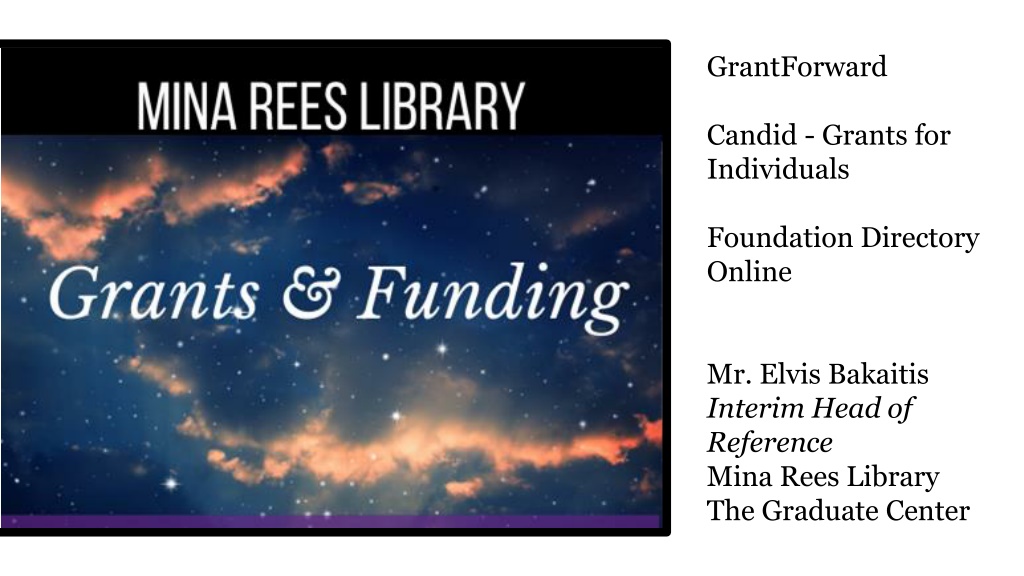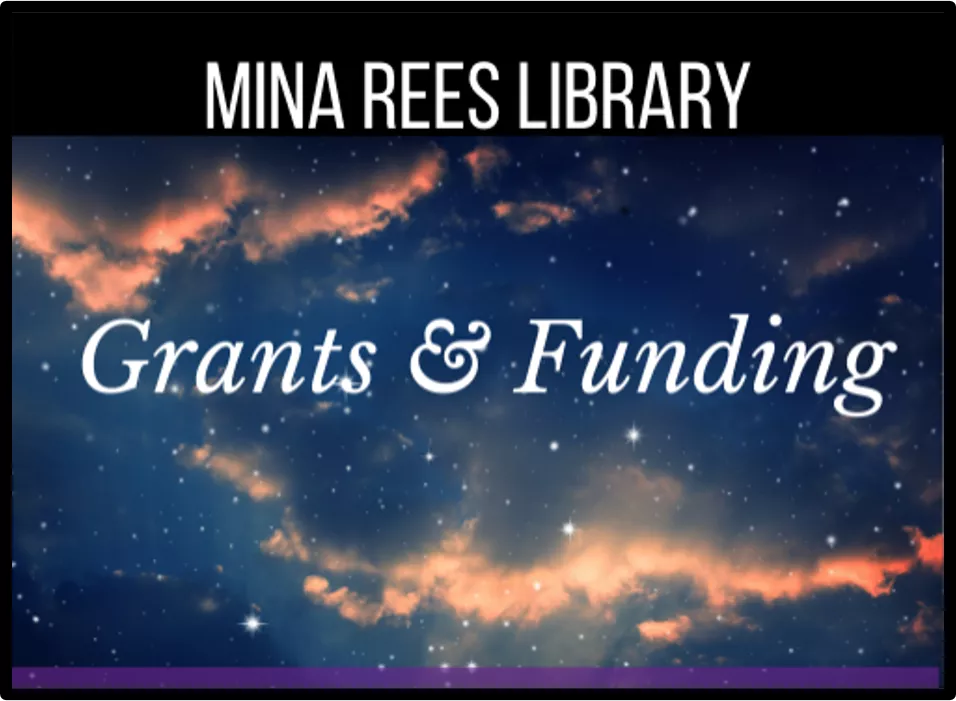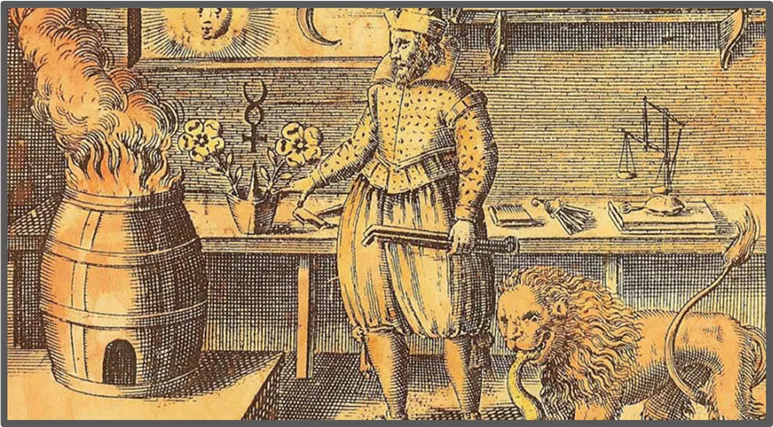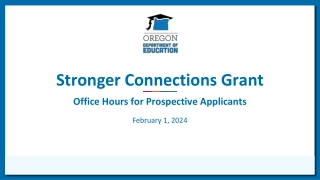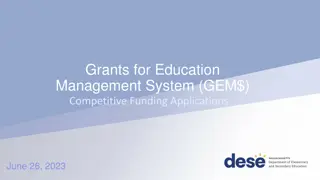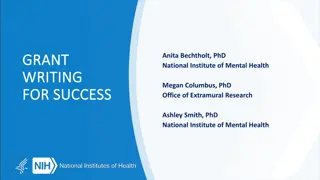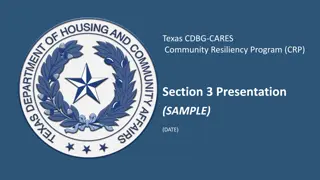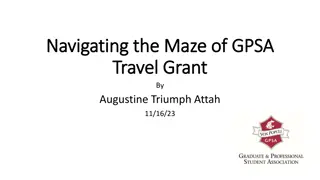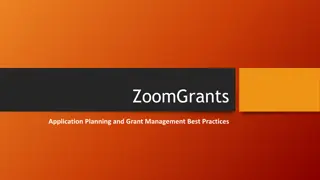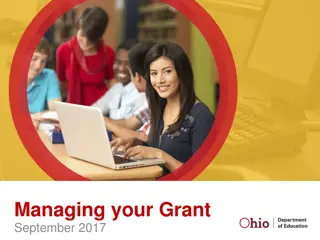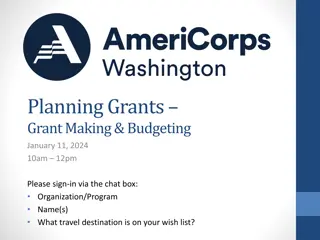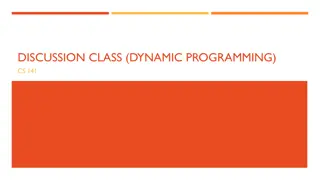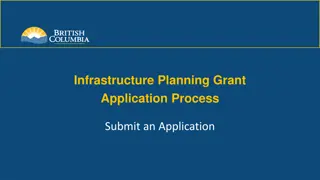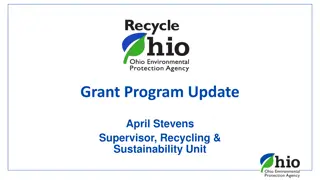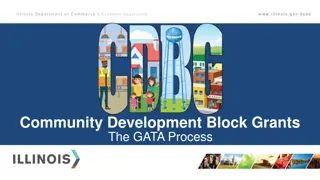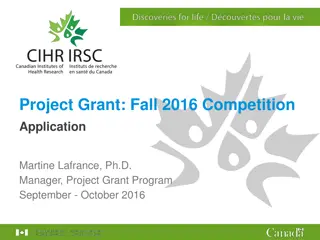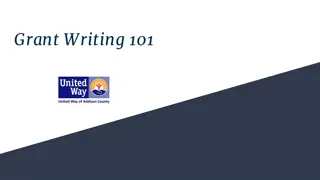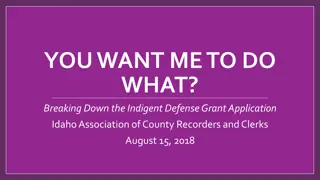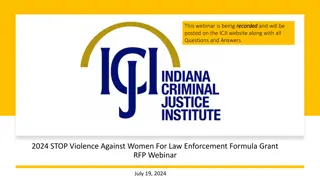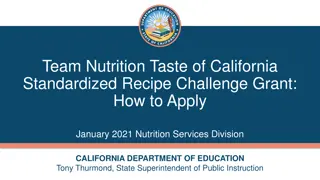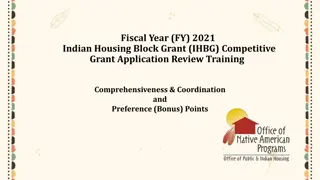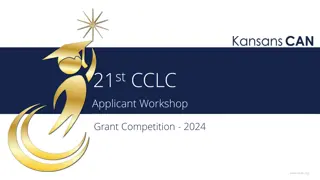Maximizing Grant Application Success
Crafting a winning grant application involves attention to detail, alignment with funders' expectations, and effective communication. Explore key elements such as budgeting, terminology, and proposal strategies to enhance your chances of securing funding. Learn from unsuccessful applications and adapt your approach for future opportunities.
Download Presentation

Please find below an Image/Link to download the presentation.
The content on the website is provided AS IS for your information and personal use only. It may not be sold, licensed, or shared on other websites without obtaining consent from the author.If you encounter any issues during the download, it is possible that the publisher has removed the file from their server.
You are allowed to download the files provided on this website for personal or commercial use, subject to the condition that they are used lawfully. All files are the property of their respective owners.
The content on the website is provided AS IS for your information and personal use only. It may not be sold, licensed, or shared on other websites without obtaining consent from the author.
E N D
Presentation Transcript
GrantForward Candid - Grants for Individuals Foundation Directory Online Mr. Elvis Bakaitis Interim Head of Reference Mina Rees Library The Graduate Center
Anatomy of a Grant Application - The Proposal - Word counts - Consistent terminology Letters of Recommendation Budget - Adminsitrative costs - Staffing CV s of applicant(s) - - - Most important: The Deadline!
Budgets & Terminology - Make sure the same terminology is used in your budget and application Use the same terms consistently within your application What words do the funders use? With larger grants, you can build in administrative/accounting work to administer the funds. - - - Terminology specific to the grant (one example): https://www.grants.gov/ https://www.grants.gov/learn-grants/grant- terminology.html
The Proposal: Building towards opportunity - Be specific! Leave no room for the imagination about your topic and/or what you will do with the funds. Public-facing Components: Consider linking to your previous work, either Open Access articles, OER materials, open syllabi, course sites, etc., that you have created. This is an excellent way to demonstrate a commitment to public scholarship. - You can upload different types of content to CUNY Academic Works: scholarship, lecture slides, presentation slides, etc. Indexed in Onesearch! Open Scholarship is a compelling way to show a commitment to the public. (In some fields, publishing the research or data may be required by the grant, i.e. government grants).
So you didnt get the grant - - Ask if you can resubmit in the next funding cycle Ask how you can strengthen your proposal / if they would be willing to share any feedback about your application For larger grants/foundations: Ask if you can see reviewer s comments Who else did they fund? (see the Awards section in GrantForward) Keep your notes and reflections, this can be useful fodder for the next round. - - What will you NOT find in grants-related databases? - Actual text of successful proposals - A way to track your own application process - The application itself (you must apply through the funder
Once you get the grant - - - - What kind of budgetary reporting is required? Quarterly financial statements, OR itemized receipts, OR a written report. Are you distributing the funds to yourself or others, and how? Dates of budget reports and final deliverables (what format are you submitting, how will this be delivered). What if my project develops and changes during the grant cycle? - There is flexibility! You can ask to modify the budget (within reason). -
GrantForward: Useful Terminology Pre-Solicitation Notice: A notification that the Agency will be issuing a solicitation (call for proposals). Used for government grants. Grants.gov vs. Sam.gov vs. beta.Sam.gov - Transition to beta.sam.gov will occur on May 21, 2021. Awards - Search Awarded projects (that have already been funded) to get a sense of the research an entity supports. The Catalog of Federal Domestic Assistance (CFDA) is a compendium of assistance programs offered by various U.S. government agencies to the American public.
Grants for Individuals, hosted by Candid Foundation Center and Guidestar -> Merged to become Candid. You can visit them at their Learning Center (bring yourself, bring a class): https://candid.org/improve-your-nonprofit/candid-in-your- community/new-york/visit-us
Grants for Individuals, hosted by Candid https://taxonomy.candid.org/subjects The Philanthropy Classification System (PCS) is Candid's (formerly Foundation Center and GuideStar) taxonomy, describing the work of grantmakers, recipient organizations and the philanthropic transactions between those entities.
Apply! Toss your hat in the ring.
Resources Each CUNY college has an Office of Grants & Sponsored Programs - List of associated individuals
Links to various resources: Research Guide - Grants & Funding: https://libguides.gc.cuny.edu/c.php?g=159586&p=1045063 GrantForward: https://libguides.gc.cuny.edu/grantforward Grants to Individuals, via Candid: https://grantstoindividuals-org.ezproxy.gc.cuny.edu/search#
